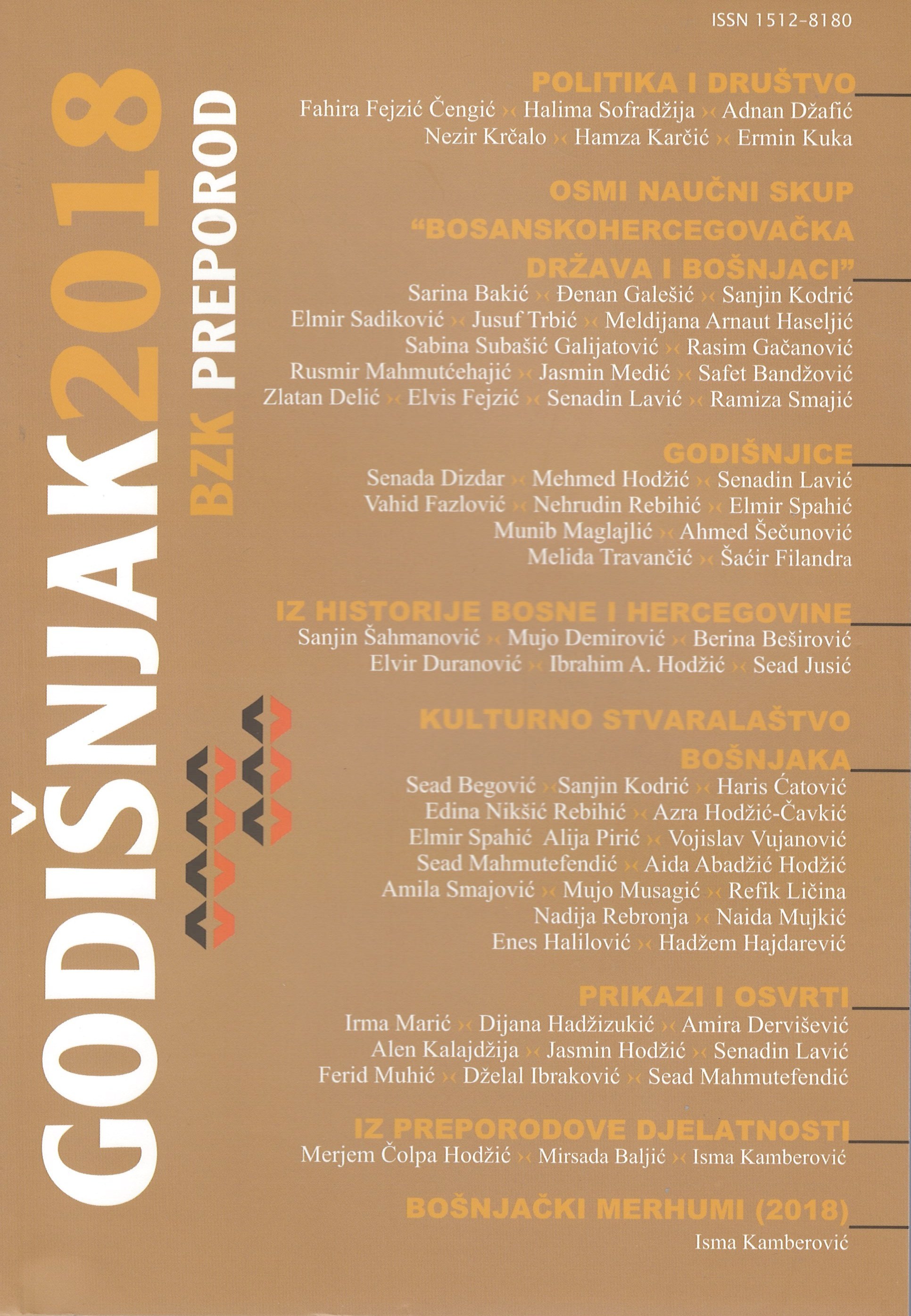Bosanska pluralnost u vizurama Mostara: Ćišićeva detekcija antibosanskih protagonista i politika (kad su Hercegovci bili najveći Bosanci)
BOSNIAN PLURALITY IN OUTLINES OF MOSTAR: ČIŠIĆ'S DETECTION OF ANTI-BOSNIAN PROTAGONISTS AND POLITICS (WHEN HERZEGOVINIANS WERE THE GREATEST BOSNIANS)
Author(s): Đenan GalešićSubject(s): Politics / Political Sciences, Political history, 19th Century, Pre-WW I & WW I (1900 -1919), Interwar Period (1920 - 1939), WW II and following years (1940 - 1949)
Published by: Bošnjačka zajednica kulture "Preporod"
Keywords: Bosnia; Bosnia and Herzegovina; Bosnian people; Bosnian plurality; Bosnian life philosophy; Serbia; Croatia; Muslims; Catholics; Orthodox; Jewish;
Summary/Abstract: Although he worked in a bad time when Bosnia's history was falsified and simplified (similar or the same trends continue even today), Husaga tried to emphasize and argue his views for Bosnia to be understood as a single, self-developed, historical organism that has been independently developed. Bosnian autonomy, i.e. Bosnian political independence, was the basic theme of his life, work and action.Through his writings, Husaga presented Bosnian values, values of respect and appreciation of all religious manifestations in Bosnia, which Bosnian people approach and pray to one God. The passion of studying happenings and events that have existentially threatened his country and his people was visible from his writing.Husaga did not avoid passionate and without beautiful words to describe the events whose committers were enemies of Mostar and Bosnia: Venetians and Stojan Janković, Captain Mocenigo, Mehmed-Pasha Kukavica, Austrian troops, Omer-Pasha Latas, Russians and Montenegrins, Serbs, as well as numerous Ottoman officials whose presence in Bosnia meant suffering for the Bosnian people.Husaga discovered and unmasked in his own specific way the breakers of Bosnia who worked in his time, sharply objecting them to undermine and destroy Bosnian universal values, and these values promote in the same or similar way all three Abraham’s religions. Husaga considered that actions of the interpreters of religion from Bosnian environment were responsible for the collapse of Bosnian society and the grotesquely setting of the society. Contrary to them, Husaga pointed out the Bosnian ideal consisting of the ethically based society with the right to religious differences. This is the essence and meaning of religious plurality of Bosnia-belonging.
Journal: Godišnjak Bošnjačke zajednice kulture »Preporod«
- Issue Year: 2018
- Issue No: 1
- Page Range: 99-118
- Page Count: 20
- Language: Bosnian

